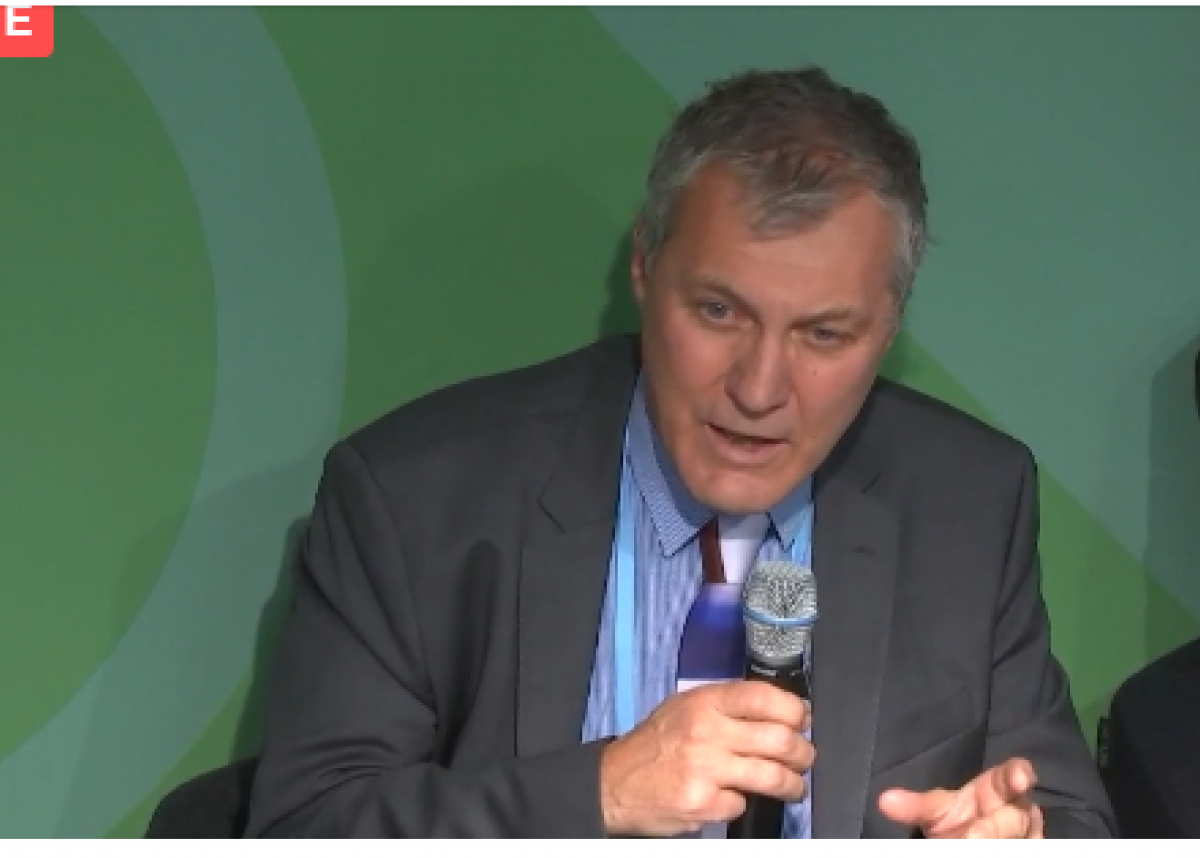
11 November 2021 was Cities Day at COP26. Prof Michael Keith was there stressing the importance of cities to the imminent climate crisis.

This blog originally appeared on the University of Oxford's True Planet webpage in the run-up to Cities Day at COP26.
Most of Delhi’s 11 million population lives in the ‘informal city’, which comprises different forms of unplanned settlements.
The city attracts migrants from the most vulnerable regions of India. Many migrants arrive from climate-sensitive areas and are escaping floods and droughts in their home regions. But, on entering the informal city, they face new risks and challenges. As inhabitants of informal settlements and participants in the informal economy, they carve out a fragile urban belonging based on complex trade-offs.
As two anthropologists wanting to make sense of the complexity of the informal city, we have discovered that ‘following’ urban objects, such as drains and plastics, tells us a lot about the informal parts of the city, and their inhabitants. This helps gives a better sense of how informal dwellers – such as migrants – belong to, and shape, the city. Our new film this week illustrates how our research investigates these urban objects.
City drains are often surrounded initially by open space. Migrant people tend to build their homes and communities in these spaces, often unwanted and stigmatised by other city dwellers. These marginal spaces become key sites for the urban poor to find a footing in the city to imagine an urban future. And, living close to the drains, these new residents begin to face legal vulnerabilities and complex health challenges.
Many of these migrants make a living as waste pickers. They sort through the city’s waste to find valuable recyclable plastics and sell them to recycling units that make new bottles or polyester fabrics. Plastics generate informal economies. These objects provides an understanding of informality, and how the informal city interacts with the state.
The state plans and manages plastics through the banning of particular types of plastics, while drains are managed through regulations that criminalise communities building dwellings along it or making use of open drains ( Bhawani’s earlier blog describes this in more detail).
Drains are a way to rationalise the city’s ecosystems. Plastics are a way to rationalise the city’s consumption.
Our work builds on a mosaic of methodologies, comprising ethnographic fieldwork and close readings of policy documents on climate change, drains and plastics. Documenting lived-experience accounts and oral history narratives of the community members, observing their everyday interactions with the state, and a close reading of the texts of key policy documents, are our key approaches on the ground to understand contemporary urban dynamics.
The focus on drains and plastics also provides a lens to study how and whether the Sustainable Development Goals are being achieved. Understanding how informal settlement are managed and inhabited is key to making them more equal, sustainable and resilient to today’s challenges.
The COVID-19 pandemic brought to the fore how little we know about cities, especially those parts outside formal state control.
The Indian state followed a public health reasoning similar to other governments around the world. But cities, with a vast informal population such as Delhi, pose health agencies with a huge challenge.
In India, the first COVID-19 lockdown triggered a migration crisis referred to as ‘the greatest exodus since partition’. In Delhi, in particular, the emergency triggered a widescale return to of migrants to their home states and the lockdown turned this public health crisis into a financial and food security crisis, which hit the most vulnerable residents of the city.
The pandemic exposed our understanding of cities and how they actually work. Our limited understanding of informal cities poses a challenge to our ability to assess the resilience of societies, and their limitations. Understanding how formal and informal sectors operate, and how they interact, is crucial to plan inclusive and sustainable cities in future.
It is essential to understand informal cities and the lives of their communities, if cities are to be more equal, sustainable, and better prepared for the urgent challenges of the 21st century.